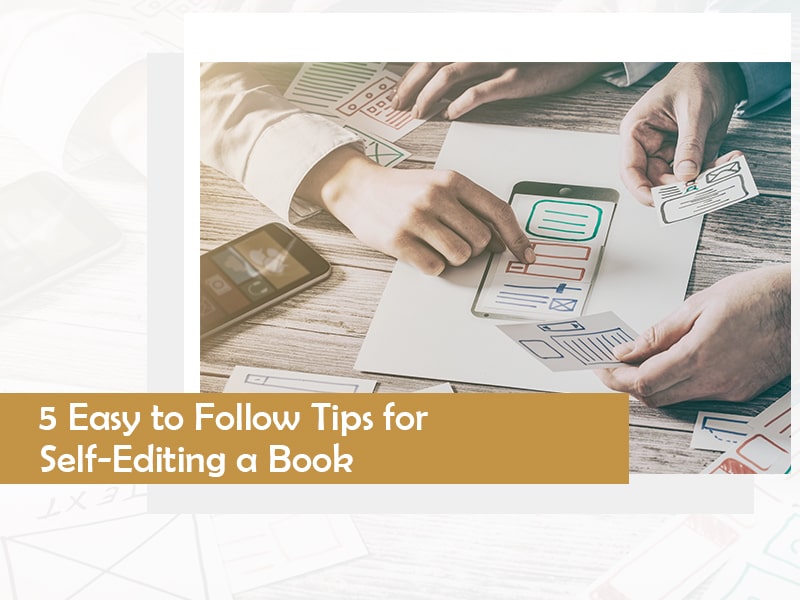PRIVACY COMMITMENT TO OUR AUTHORS
Effective date:
Writers Republic abides to every author’s personal information being entrusted to us. And with that, we have stipulated a privacy policy that will show the processes of our ways in collating our clients’ personal details as needed in the publication process. As an established publishing company, our prohibitions strictly includes sharing, selling, or any illicit transactions of personal information from our clients.
Personal Details Needed:
- a) Name
- b) E-mail Address
- c) Phone Number(s)
- d) Physical/Billing Address
- e) Book Information
Authors can find our privacy policy through all forms of compiled and submitted information to either the company’s employees, through e-mail and phone, or from our website www.writersrepublic.com.
Information Usage
The use of the author’s personal information will take place in completing registrations, necessary materials to be used in publication arrangements with our specialists, and payment transactions that will be accomplished from our services and packages.
Registration Process
Users must fill out and complete any registration form before they can access anywhere in the Site as they wish to. These include the services, promos, blogs, and rest of the facets they can explore once they are registered to the system. The authors are entitled to a free publishing guide to give you a brief idea about self-publishing. Relevant features also include the Authors’ Lounge that teaches you some publishing tips you will be needing during the procedure.
Providing the user’s contact information like his/her name and email address during the registration will be necessary for our specialists in keeping in touch with the client anytime in regards to the manuscript submission, publishing, and finally, expanding his/her book’s publicity by any means. Our registered authors are free from accessing the website with his/her personal data or they may reach our customer service representatives through telephone or e-mail for further information and updates on our services. Aforementioned, all of the author’s personal data submitted to us will be kept confidential.
Information Sharing
Sharing of the client’s personal data to third parties is considered a violation unless it is conducted in a way it is indicated strictly in the privacy policy. Authors must understand that we are required to provide their personal data to other businesses that will to provide the required assistance in succeeding the publishing procedure, the following involves payment processor or a third party vendor benefit. These associated firms has established the consent to use the client’s personal data for necessary purposes of providing a quality service to Writers Republic.
Writers Republic also holds the right in personal data disclosure if requested by the state, under legal grounds or government demands, for summon compliance, investigation purposes, for the client’s protection and someone else’s, and if disclosure is required for the company’s privileges.
In any case that Writers republic will conduct a union with associated companies, procurement, or sale of all or a share of its properties, authors will be notified through a notice in our website or sent through email of any ownership change or the utilization of the user’s personal data, in addition to the selections provided regarding his/ her personal information.
The company solely shares the collected information to the firms we do business with to acquaint them with the services or assistance needed for the publication. The data required plainly comprises with order completion, payment transactions, and the rest of the necessary processes. We can guarantee our users that the submission of these information will not be concomitant to any confidentialities that will identify a person’s identity. Privacy rules include prohibitions of sharing, or keeping of any private information for unrelated businesses to our company.
Data Protection
Our authors’ confidentiality comes first all the time. We follow the widely accepted preference in safekeeping the user’s personal data during its transmission and by the moment it is stored in our system. Writers Republic ensures both online and offline security of all information provided by our authors through the website. Any electronic transmittal over the internet may not be overall safe, hence the company cannot commit to an absolute protection.
The client’s agreement entails his/her responsibility in sustaining the account access, any personal information, benefits, company’s services, logins, and passwords. The author’s adherence to these sanctions include acquainting Writers Republic through phone, e-mail, or any means of communication, should there be any inadmissible access to the author’s account and all the applicable company data and services. Any direct, involuntary, minor, or distinctive damages caused due to client’s failure to adhere and/or inefficiency in utilizing the company’s site, services, and transactions will not be held liable to Writer’s Republic.
Any messages received or consequences resulted due to the user’s technical unfamiliarity or insufficient knowledge will not be held accountable to Writers Republic. Furthermore, any damages incurred due to negligence to the information entered or impermissible access will leave no liability to the company. These reparations may denote to but not restricted to revenue loss or reduced profit from the entire process.
Electronic Tracking Tools and Site Traffic Usage
Writers Republic website collects SSI (Standard Statistical Information) about the site visits and keeps a record of it as much as other websites do. Please be advised that the IP addresses, browser information, its timestamps, and referred pages are tracked for the sole purpose of maintenance and to construct the site noticeable and valuable as it can be. No accumulated data is joined routinely to other information we collect from our users.
The site server gathers fundamental technical data from our site visitors which include their IP address, domain label, and referral information. Alongside with the said above, the site also tracks the total count of the site activity from our online visitors for the intention of analyzing the flows of our site traffic. For our statistic intents, we may incorporate the information from one visitor with another into group facts, which will probably be shared on a cumulative base.
The technologies in particular: beacons, cookies, tags, and scripts are utilized by writersrepublic.com, our publishing & marketing associates, publicity service providers. These innovations are used in examining trends, website managing, tracking users’ navigation anywhere on the site and to collect public data about our user in entirety. We may obtain news founded on the utilization of these innovations by these firms on an individual as well as on an accumulated basis.
Writers Republic affiliates with third parties to offer positive features on website or to exhibit advertising based upon your web navigation activity also uses Local Storage Objects (LSOs) such as HTML 5 to gather and keep some data. Browsers may provide their own administrating tools in taking out HTML LSOs. To manage LSOs please click the link provided: http://www.macromedia.com/support/documentation/en/flashplayer/help/settings_manager07.html
Removing or Updating Your Information
Don’t hesitate to reach us directly anytime when you want to delete, update, or correct information you give over the phone or e-mail. For safety purposes, Writers Republic takes functional regulations in authenticating your identity before we grant you the access in changing and updating personal details.
Your personal record and other data will be kept so long as you stay active as our site user or as necessary to offer you services. Please note that we’ll be using your information for necessary compliance of lawful commitments, imposing of agreements, and determination of disputes.
Contributors
Writers Republic will be requiring your contributors’ names to be indicated in the book publication when you opt to add them as contributors for your book publishing service. We will store your contributors’ personal details for the sole purpose of fixing their names on one of the pages of your book. Your contributors may reach us at info@writersrepublic.com to request for removal of personal information from our system.
3rd Party Sites Link
Our company recommends you to carefully go over to the privacy policy of any website you visit or send personal information to. Our website comprises links to other sites whose norms and privacy regulations may contrast to ours. Accordingly, providing of personal data to these websites is administrated by their privacy rules and not ours.
Social Media Features & Widgets
Writers Republic website involves social media features such as: Facebook “Like” button and widget, such as the interactive mini-programs that run on our site or the “Share This” button. Please note that these features may set a cookie to allow the feature to appropriately function. It may also collect your IP address and which page you are visiting on our site. Your interactions with these features are either presented directly on our website or by a third party.
Announcements and Newsletters
Writers Republic will be inquiring your e-mail address if you’re interested to subscribe from our self-publishing updates, newsletters, articles, or periodic product and service announcements. You may choose to unsubscribe by clicking on the “Unsubscribe” button at the end part of the mail sent to you should you no longer want to receive emails from us.
Discounts and Promos
We offer promos and special deals on out publishing and marketing services from any given point of time. Thus, we may request for your contact details that includes your name, shipping address, demographic data, and educational attainment which will be utilized to inform the winners and prizes. Participation in any contest and promo is voluntary. The purpose for our promos, discounts, and contests, will be employed to assess and enhance eminence of or services to our clients.
Policy Changes
Any modifications or changes to be applied in our Privacy Policy will oblige Writers Republic to provide a notice on the website or by email before the change will take effect. Therefore, we recommend you to go over this page for any probable alterations and updates on our privacy norms.
You may send us an email at info@writersrepublic.com for all concerns, queries, and updates of personal details such as your email and mailing address. This also serves as your alternative to reach us if you want to withdraw your service or if you no longer want to receive any updates from our end.
Writers Republic will not be held accountable for any check payment issues, apart from the checks that are delivered to the address indicated below.
Writers Republic Publishing
8130 Lakewood Main Street, Suite 103 #238 Lakewood Ranch, FL 34202





